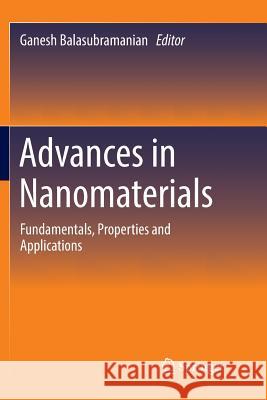Advances in Nanomaterials: Fundamentals, Properties and Applications » książka
topmenu
Advances in Nanomaterials: Fundamentals, Properties and Applications
ISBN-13: 9783319878539 / Angielski / Miękka / 2018 / 180 str.
Kategorie:
Kategorie BISAC:
Wydawca:
Springer
Język:
Angielski
ISBN-13:
9783319878539
Rok wydania:
2018
Wydanie:
Softcover Repri
Ilość stron:
180
Waga:
0.28 kg
Wymiary:
23.39 x 15.6 x 1.07
Oprawa:
Miękka
Wolumenów:
01
Dodatkowe informacje:
Wydanie ilustrowane











